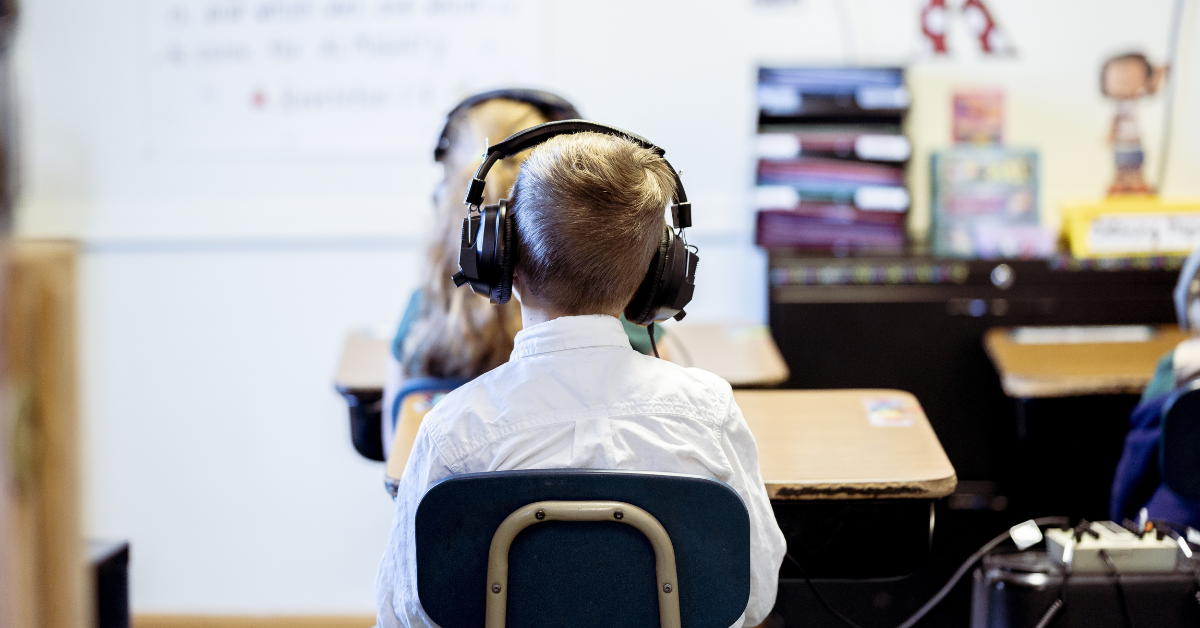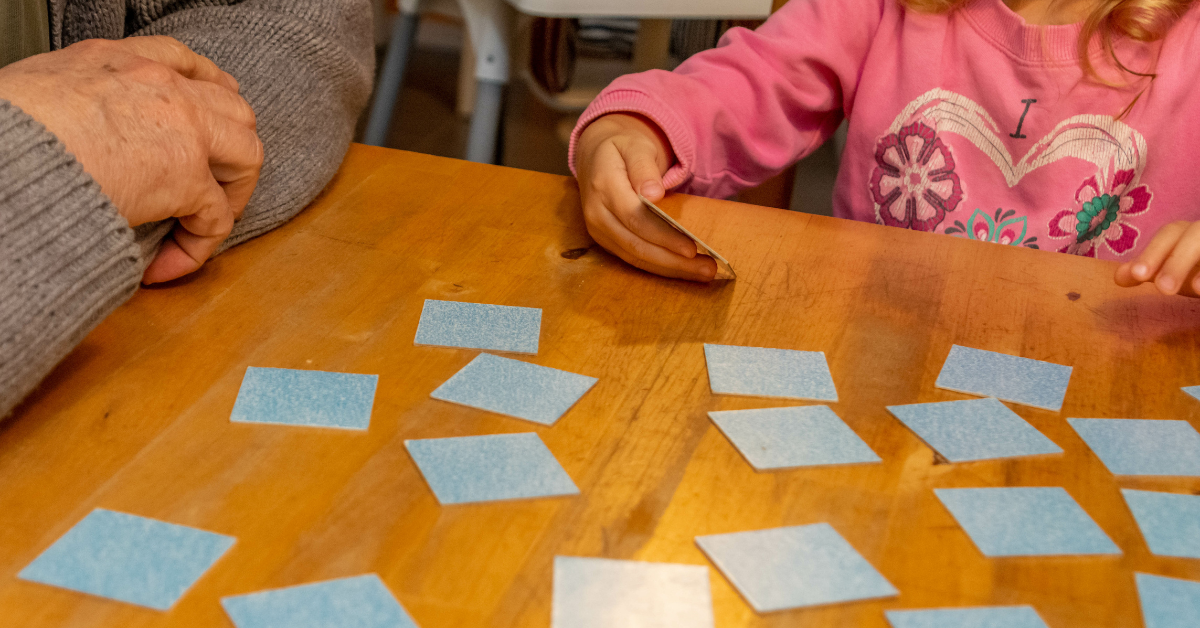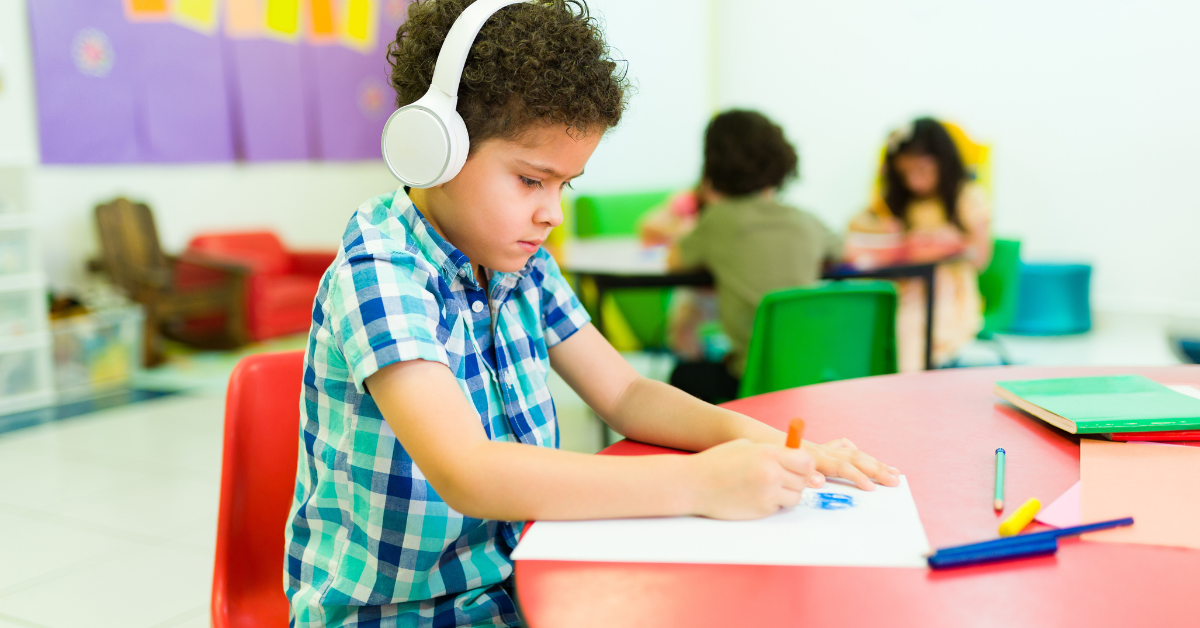As many as 7% of school-aged children experience Auditory Processing Disorder. These learners might have trouble distinguishing the individual sounds that form words. It is not a hearing difference—it's a challenge related to how the brain parses language.
The more we learn about this unique set of learning differences, the more prepared we are to help children succeed in and out of the classroom. The right coping skills for kids can help students control their environment and thrive anywhere. Dedicated educators not only teach these coping skills but curate a learning environment where these techniques and tools are the norm.
At Eagle Hill School, we want all our students to leave with a toolbox full of skills to help them self-advocate and accomplish their dreams. We've created this guide to help parents and caregivers understand the accommodations they might observe in their child's classroom.
Read on to learn how children can best cope with APD at school, at home, and everywhere they go.
Auditory Processing Disorder in the Classroom
Imagine a busy elementary or middle school classroom. Students chatter, music plays in the background, fans circulate, lights buzz, and graphite whispers against notebook paper. While this environment may seem friendly and lively, it can make it difficult for students with APD to learn.
After an evaluation, students with Auditory Processing Disorder often receive accommodations at school. All of these changes improve the learning environment for your child. They may also make it easier for all students to listen, focus, and process information.
Common accommodations include:
- Providing lesson plans ahead of time
- Use of specialized listening devices to aid in comprehension
- Additional time for testing, especially during listening tasks
- Testing in a quiet, distraction-free room
- Use of visual aids to help with following multi-step directions
- Providing written or printed homework assignments
- Alternate rubrics for projects and assignments
You and your child's teacher are part of the same team. You share a goal: you want your child to succeed in the classroom. These accommodations can help students become more independent and confident at school.
Classroom Coping Skills
Not every accommodation will be part of your child's IEP. Many techniques fall under the category of "coping skills." These are changes that may help some children with APD succeed at school.
For example, students with APD might feel more confident if they sit closer to the teacher. They may choose to sit away from distractions. The first step is working with an educator to identify those preferences and distractions so they can make these choices themselves.
Students can also curate a physical toolbox to help them cope in the classroom. Some students carry earplugs or noise-canceling headphones for use during independent work. Others work with teachers to develop a series of hand signals to make non-verbal communication more efficient.
Ultimately, the best coping strategies allow students to make choices that lead to success.
We've included other effective strategies on this coping skills list:
- Using tools like highlighters to identify keywords in written assignments
- Arranging meetings with teachers to review or preview new learning
- Choosing a "buddy" to help with note-taking
- Demonstrating their understanding non-verbally when possible
- Deciding when to take breaks to reduce auditory fatigue
The key to long-term success is teaching agency early. Children with learning differences can self-advocate when teachers help them make the best choice for their needs.

At Home Coping Skills for Kids With APD
Auditory Processing Disorder isn't a school issue. It's something that impacts your child everywhere. Even if your child has mastered coping skills in the classroom, they may struggle at home or in public.
One of the most significant areas of struggle involves following multi-step directions. Children with APD often mishear instructions or struggle to remember steps. It may look like disobedience, which can lead to parental frustration.
You can modify many classroom strategies for home use. Here are a few tools that might help simplify routines and transitions in the home.
Embrace Visuals
Consider using a visual schedule to remind your child of the steps in a multi-step task. They can reference images and check off the steps as they go, encouraging independence. You can use a simple pocket chart, a velcro system, or a plastic binder sleeve.
Try Hand Signals
Getting your child's attention in a busy place can be challenging. Come up with a simple hand signal vocabulary. Include signals for "time to go" or "five more minutes" to simplify transitions.
Play Memory Games
Memory is a skill that your child can improve through play. Incorporate a few memory games into their after-school routine. A simple iPad app, board game, or worksheet each day can help build this skill over time.

Create a Quiet Space
Individuals without APD don't realize how distracting ambient sound can be. Ensure there's at least one distraction-free workspace in your home. Designate this as a comfortable, child-friendly space for homework, practice, or sharing information.
Check-In, Don't Assume
Children with Auditory Processing Disorder can't always ask you to repeat confusing information. Sometimes they fail to realize they haven't understood instructions. Ask your child to demonstrate understanding rather than assuming they understood.
If you do have to repeat information, try to rephrase it. Something might "click" when presented in different words. Include visuals or demonstrations whenever possible.
Celebrate Learning Differences at Eagle Hill
Humans may not have designed the world with Auditory Processing Disorder in mind, but that doesn't mean children with these learning differences cannot thrive. At Eagle Hill School, we offer coping skills for kids as part of our day-to-day curriculum. With the right tools, children can hone their listening skills and find joy in learning.
Eagle Hill School is a community where children with learning differences feel at home. We invite you to see these coping skills in action.


